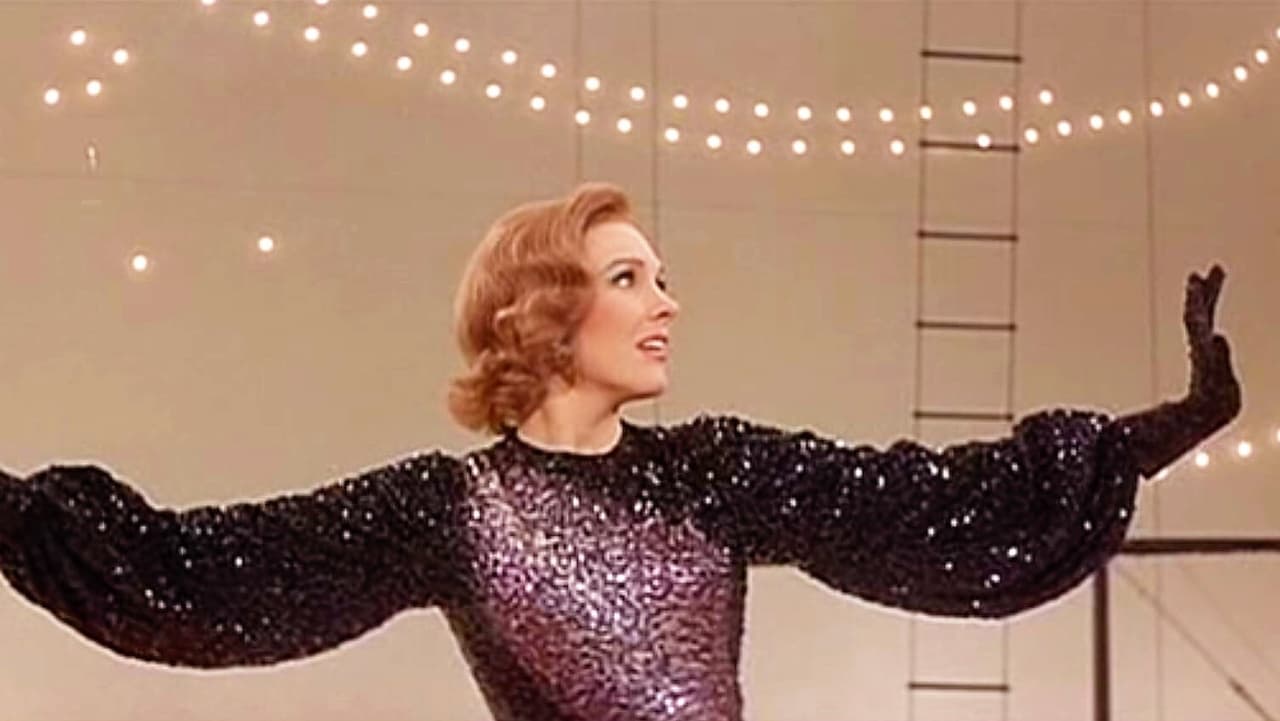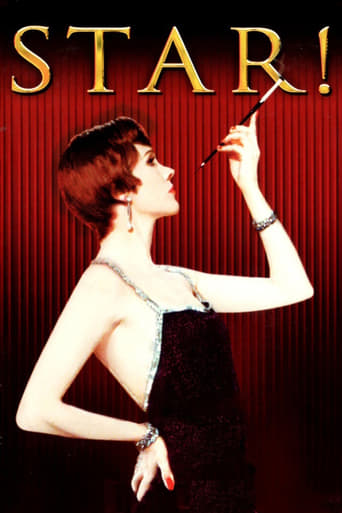

Good films always raise compelling questions, whether the format is fiction or documentary fact.
... View MoreBlending excellent reporting and strong storytelling, this is a disturbing film truly stranger than fiction
... View MoreThis is a small, humorous movie in some ways, but it has a huge heart. What a nice experience.
... View MoreEach character in this movie — down to the smallest one — is an individual rather than a type, prone to spontaneous changes of mood and sometimes amusing outbursts of pettiness or ill humor.
... View MoreCharlie Chaplin shtick hearkens to British Music Hall. Both Gertrude Lawrence and Julie Andrews received their training from the British Music Hall. The Muppets hearken to the British Music Hall. To appreciate Broadway, you have to appreciate the British Music Hall. Julie Andrews' rendition of "Burlington Bertie from Bow" immediately calls to mind Chaplinesque shtick and shows the pervasiveness of that British Music Hall. Irving Berlin would revamp a similar song for Astaire/Garland in "A Couple of Swells" in the film Easter Parade. Julie Andrews' Burlington Bertie should rank with Donald O'Connor's "Make em laugh" from Singing in the Rain.Just watch "Parisian Pierrot" and one immediately sees Joel Gray the Emcee of "Cabaret". The world from Berlin Cabaret to British Music Hall to the Broadway Stage and Hollywood is awfully short.I seem to recall reading that Gertrude Lawrence had a very limited vocal range (A to A flat) but she could put over a song. Julie Andrews on the other hand can give the musical range the song intends. By the end of the film, Gertrude Lawrence about 1940 is aged 42 and in obvious distress from alcoholism; she would die in 1952 at age 54 of liver cancer. Gertrude Lawrence was extremely difficult to work with, but her ability to put a song over made her acceptable to producers etc. Gertrude Lawrence was fortunate in her friendship with Noel Coward, apparently a friendship that dates from her pre-teen years.Comedy is hard, dying is easy--so goes the trope. Just watch :"Burlington Bertie" to see how much physical discipline the comedian must bring to the task of comedy. The actor must call on their body to act, to respond in a certain way to get a certain effect, a certain laugh. It ain't as easy as it looks.The movie was a flop when released in 1968; an hour was cut from the three hour film and it was still a flop. Apparently, the original had been 'lost' or misplaced and didn't turn up till some 25 years later when it was re-released. Sometimes you see a movie for snippets or a song. "Thanks form the Memories" or "The Last Time I Saw Paris" creating memorable moments from forgettable movies. But this is a movie that sustains its own weight throughout; it is memorable for the Julie Andrews performance (as well as Daniel Massey as Noel Coward) and others for what is a memorable film production.Most of us know Gertrude Lawrence from the Broadway Production of the King and I, which was developed as a property for her specifically; Rodgers & Hammerstein were concerned about her limited vocal range but agreed to her role. Apparently even during production of the Broadway Play she was sick from Liver cancer, missing performances, and ultimately collapsing after a Saturday Matinee Performance.16 August 1952 and dying n 6 September 1952 at age 54. The film stops with her marriage in 1940 to Richard Aldrich (played by Richard Crenna).As an interpretation of Gertrude Lawrence this film does not miss the mark; especially compared to other biopics like "Night and Day" that depicted a skewed and sanitized life of Cole Porter. It would be a disservice to the film to simply see it as a channeling of Gertrude Lawrence and her time; it is more than that: out of time even as it is in its own time.
... View MoreI just finished watching "Star!" and I must say, reading its history (it was a major flop) and some of the IMDb user reviews, I thought it would be unwatchable.Instead, I quite enjoyed it! The only thing I found untoward was the 3-hour length, and so I watched it in two installments, like a miniseries, separated by several days. That way, my interest didn't flag.I can understand why it flopped in 1968, coming out on the very heels of the incredibly successful and very similarly themed "Funny Girl," and also because it was an obvious mock-up vehicle for recent "Sound of Music" star Julie Andrews, and because it's so bloody long, and because some people saw it as merely a thin excuse for an endless program of songs for Andrews.But it seems to me that it should have a much better reputation by now, when viewed by fresh eyes! I think the script is clever and fine, and I loved all of the songs, with the exception of the harem one (which I think is supposed to be bad, given the aftermath of it). And Daniel Massey, in his Golden Globe-winning and Oscar-nominated role of Noel Coward, is superb.I loved Julie Andrews in the role of Gertrude Lawrence. She carried it off wonderfully, and is quite delightful. My favorite number is Gertie's very clever "drunken sailor" dance routine with Noel Coward. People forget that Andrews was a superb dancer as well as a singer.Taken on its own terms I find this film quite entertaining, and worth even its length if viewed in two sittings.Do check it out!
... View MoreI have to point out one thing right at the start. Reading the reviews here was more fascinating and entertaining than watching the movie itself. I can only suggest you do the same, click on the more button under the comments section and then list the "profilic" reviewers and you'll get great anecdotes about the movie and the character Julie Andrews portrays in here.Julie Andrews who in contrast to some of her other roles, plays a more serious role. Some people didn't like that, they had/have other expectations. And there lies the/one problem of this movie: It was marketed as another "Sound of Music", which it clearly isn't. Building these false expectation, the movie could only fail. Even with a very convincing performance by the lead actress. But even the biopic label doesn't fit as well, because in order to make the movie dramatic, many (real-life) things have been changed/altered. The story behind the making of the movie, the troubles the studio had, would make for a very entertaining movie ... something "Star!" can't claim to be.
... View MoreThis film shares with most biographical pictures the problematic necessity of covering large portions of its subject's life very quickly, and hence an inherent sense of 'cantering through the highlights' without the luxury of developing in detail any given relationship or scene, whereas a similar story created as pure fiction would be more likely to cover a few days, months or at most years in a single dramatic arc. In the case of a musical biography, you have in addition the problem that sank the Judy Garland version of "A Star is Born" -- with big production numbers added into the running time, you either end up with an unwieldy length of film, or the temptation to cut down on character and plot in preserving the showpiece display. The traditional stage or screen musical can use its sung-through big act finales to advance the action; the performer's biography -- unless life conveniently mirrors repertoire -- doesn't enjoy that option. I saw the uncut version (well over three hours), but I wasn't surprised to learn that the ambitiously-titled "Star!", like "A Star is Born", suffered a drastically shortened re-release. I can't imagine, however, that it can have been an improvement. Even at its uncut length, the film already comes across as a cursory skate over events...The framing device used is that of Miss Lawrence previewing a sepia-toned retrospective of her own career, with increasingly frequent widescreen colour interruptions supposed to represent reality versus publicity gloss. It isn't entirely satisfactory, but then few framing devices are.A succession of choreographed songs in what amounts to a Greatest Hits parade is the principal reason for sitting through -- and doubtless for making -- the film, and Julie Andrews belts out the numbers to good effect. She does, oddly, funk the high note towards the end of "Some Day I'll Find You", an omission all too obvious in such an iconic and familiar number; leaving one to speculate that perhaps it was the pianissimo delivery she couldn't manage {Edit: apparently Gertrude Lawrence couldn't manage the original - presumably this was done in aid of authenticity}. Daniel Massey gets all the best lines as composer and wit Noel Coward, and makes the most of them, rather stealing the show. (He is also aided in this by the way that Coward is depicted as a rather more sympathetic character than the brittle, driven heroine!) In its format, the film reminded me somewhat of 1992's "Chaplin". but its evocation of place and period is nowhere near as convincing. The big production numbers are suitably impressive, but the sketchy acting opportunities and episodic plot -- not to mention the sheer length! -- make the experience more reminiscent of watching back-to-back editions of "That's Entertainment"; on balance I'd recommend the film, but I'd recommend it largely on that basis. It does have its moments, mainly towards the middle where it's more chronologically coherent, but it's mainly worth watching as spectacle.
... View More